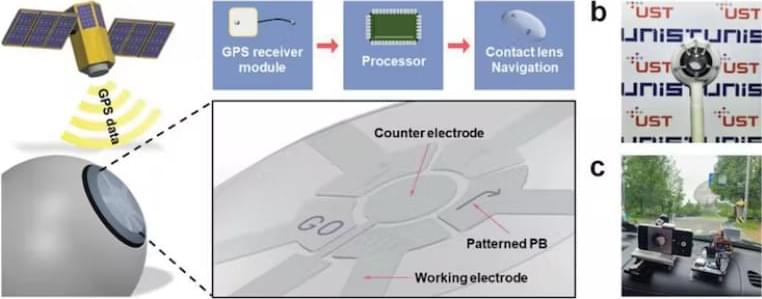Researchers from the Korea Electrotechnology Research Institute (KERI) and the Ulsan National Institute of Science and Technology (UNIST) have created “core technology” for 3D printed smart contact lenses building on low-power monochrome displays and demonstrated its functionalities for augmented reality tools such as live navigation. The team’s research has been published in Advanced Science.
“Our achievement is a development of 3D printing technology that can print functional micro-patterns on a non-(planar) substrate that can commercialize advanced smart contact lenses to implement AR (Augmented Reality),” said Seol Seung-Kwon, Ph.D., of the team’s work. “It will greatly contribute to the miniaturization and versatility of AR devices.”







